You have heard it before: tree planting is important.
And at Beevive, we are excited for our new Bamboo Edition Bee Revival Kits that are even more sustainable than our original kits, and join our Bee Hotels to plant a tree for every order.
But what's the real impact of planting trees?
Planting Trees and Climate Change
Planting trees offsets carbon emissions. Trees absorb carbon dioxide and release oxygen through photosynthesis, which makes them our easiest and cheapest defence against climate change. E.g., a mature tree can absorb 22lbs of CO2 a year to make our cities breathable and safer.
But many companies know the financial reward of being an environmentally conscious brand, so they start greenwashing products.
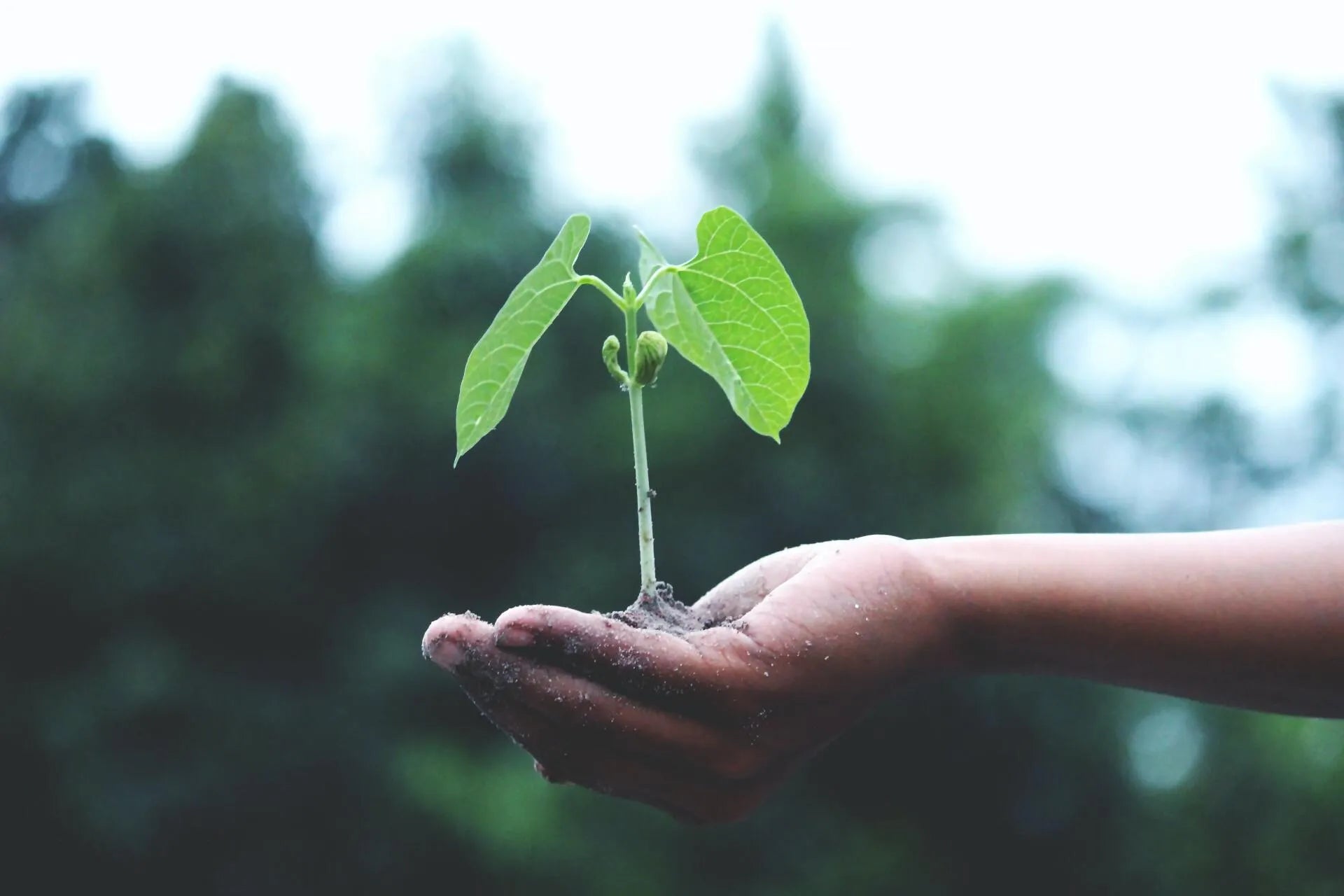
What is Greenwashing?
This is when companies use their marketing to pretend they are greener than they are. Greenwashing is unethical because it misleads customers and hides their products' harmful effects on the environment. It's an issue as 40% of the 500 websites reviewed by The International Consumer Protection Enforcement Network were found to be containing potentially greenwashing marketing.
So, how can you avoid greenwashing?
Truly green companies are extremely specific about what they use to make their products. They also have UK recognised certifications, such as the Leaping Bunny, B Corp, Carbon Trust, Fairtrade and the Forest Stewardship Council (FSC).
Read on to find out about how we make our bee-saving products sustainable…
Cork for our Keyring Show-stoppers
To reduce our carbon footprint in transportation, all our bee revival kits (bamboo and original) are proudly designed and assembled in Devon, UK. The new bamboo kits and new hotels also contain seed balls that are native and sourced in the UK too. In our bamboo kit, the 'Welcome to the Team' leaflet is made from 100% recycled fibres and the product itself is boxed in packaging that is at least 70% recycled content.
Our cork stoppers, however, aren't from the UK because you cannot get cork that is commercially suitable here. Marketable cork comes from the Mediterranean Basin and there are 2.2 million hectares of cork forest in places like Spain, Portugal, Algeria, and Morocco etc…
This is why we don't greenwash and claim to be 100% carbon neutral, despite providing environmentally sustainable products that support our bees. Sourcing our cork from Portugal though supports rural areas that don't have any options to sustain themselves economically other than wood, such as the 12000 direct jobs and thousands of indirect jobs the cork oak Montados provides.
Cork's sustainability title comes from its low carbon footprint. Conventional stoppers like plastic use 10x more CO2 than cork and aluminium caps create 26x more CO2 than cork.
Its growing speeds and that the tree is never cut down (as the bark is stripped every 10 years) adds to its sustainability. Nothing that's harvested is wasted either. Specifically, if we get any imperfect or unused cork it is sent back to be remoulded and reused into high-quality items, making it 100% recyclable.
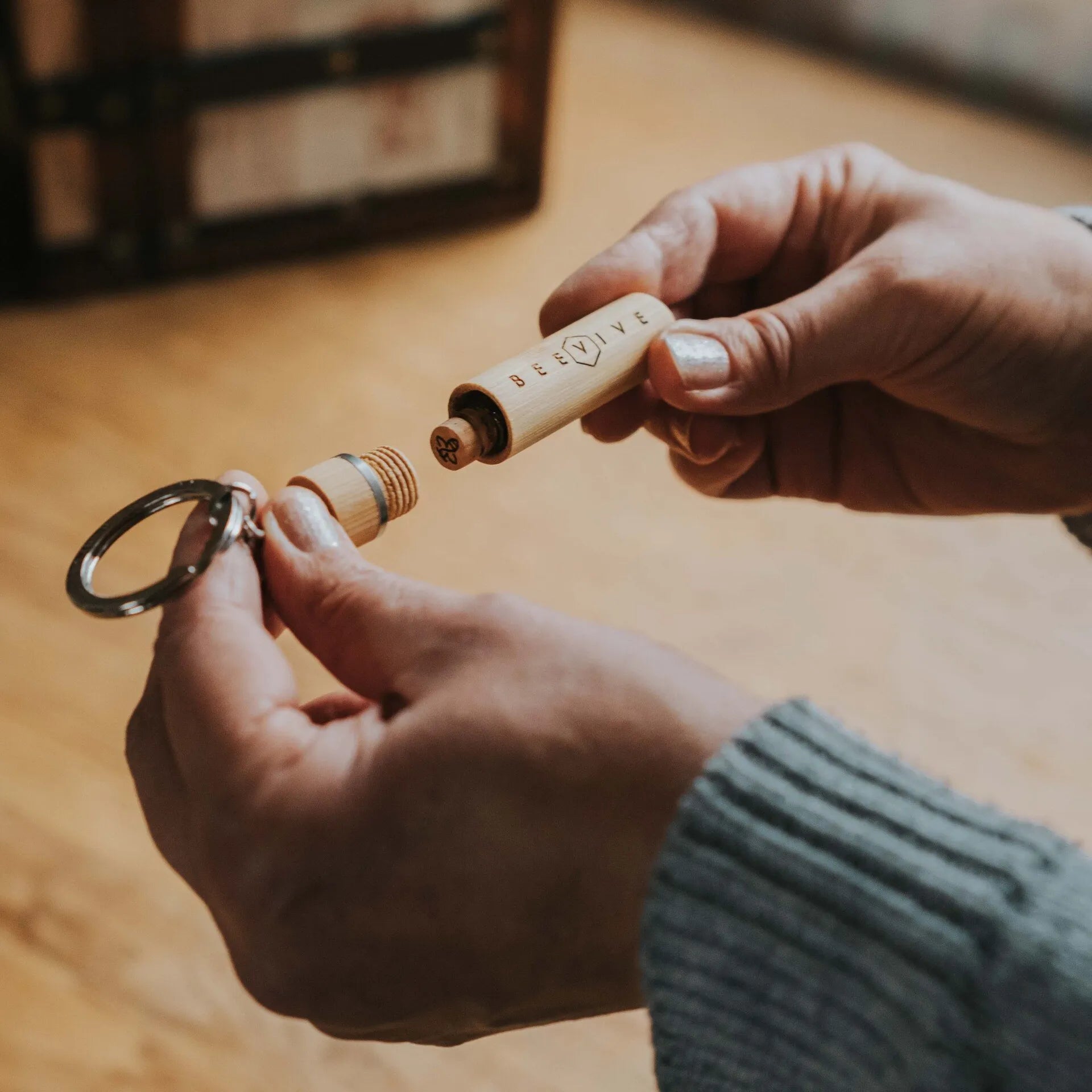
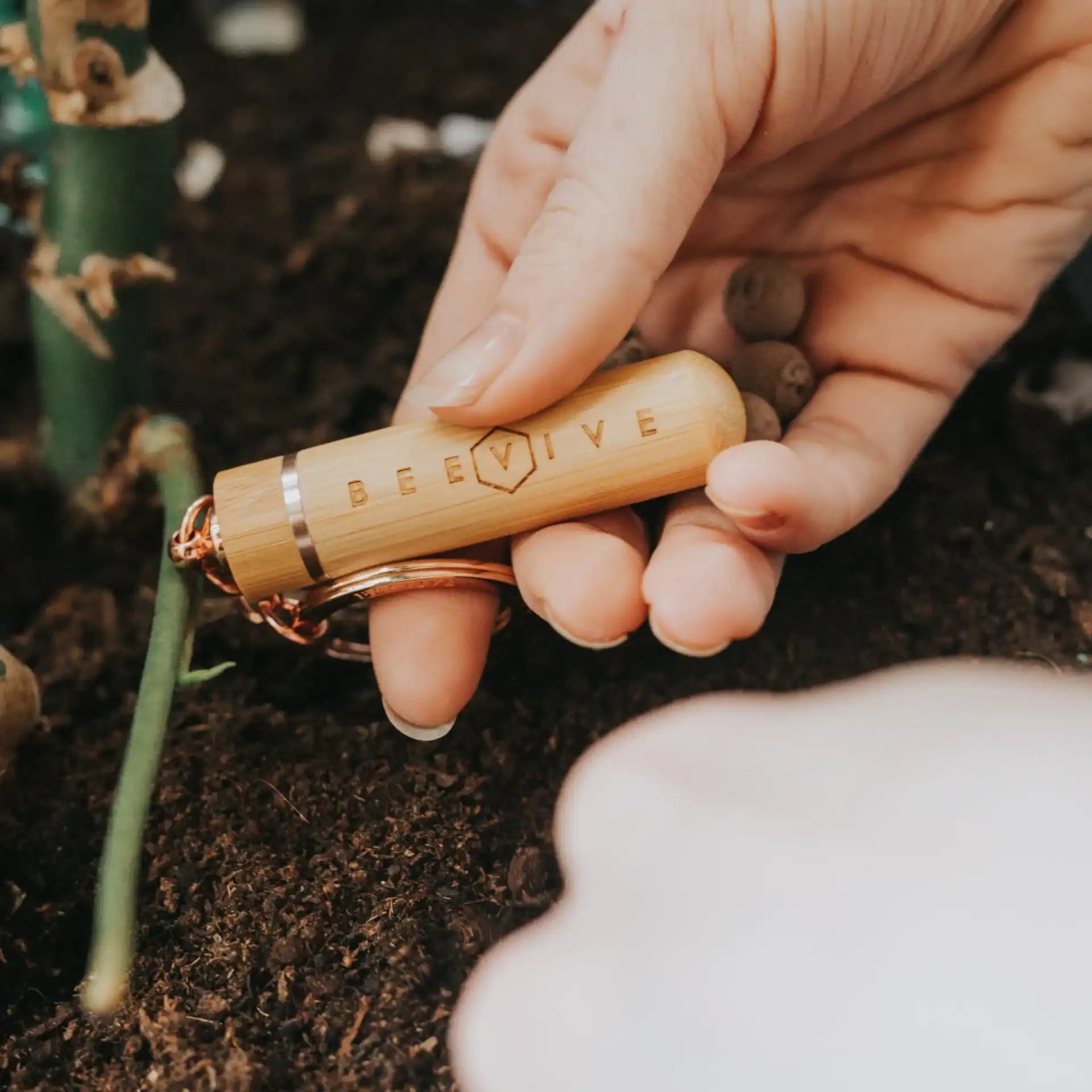
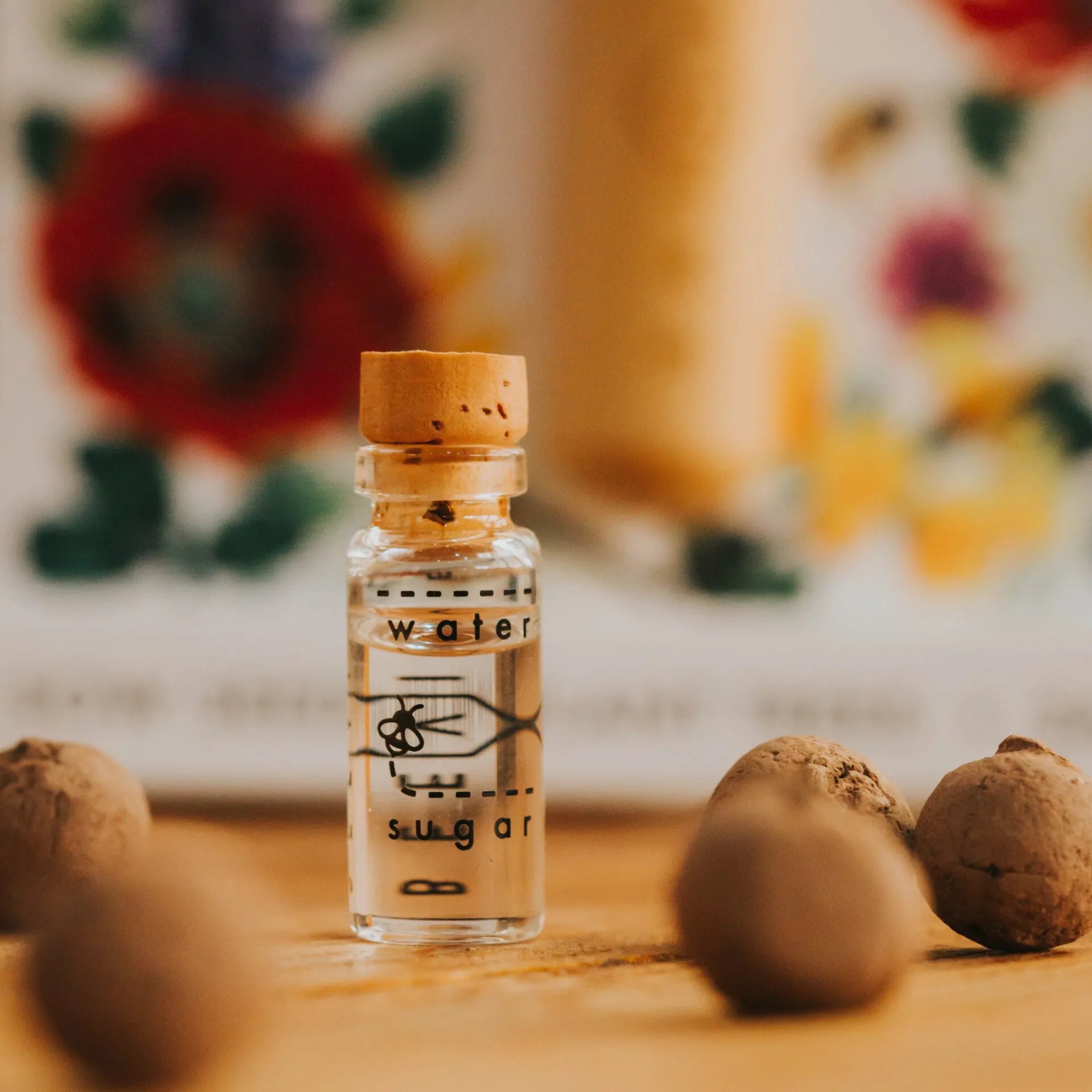
Buzzing Bamboo Kits and Bee Hotels
Our bamboo bee revival kits and bee houses are sourced from 100% FSC bamboo. This means these forests are protected from illegal or unsustainable logging that is harmful to the trees, wildlife, residents, and our atmosphere.
Bamboo is also sustainable as it grows quickly. It regenerates faster when it's cut and only takes 3-5 years to be harvested again. It's more sustainable than most other 'softwoods' that take 10-20 years until the next harvest. Some bamboo is even in the Guinness World Records for growing 2.91ft a day or 1.5 inches an hour!
The best thing about bamboo is that the trees also carbon capture up to 1.78 tonnes per clump/year. That is a drawdown curve that's 10x faster than woody trees. Bamboo doesn't need much maintenance, pesticides, herbicides, or water either, which makes it a shockingly renewable resource.
View more
Non-perfect Bee Hotels
It's not just our suppliers who are keen to stop waste.
We sell 'non-perfect' bee hotels at a reduced price and donate them to communities and schools. We want every part of our company to reflect our care for our bees and the environment, so why not reduce waste and sell perfectly functional hotels with only minor imperfect marks or a wonky logo? (We also plant a tree for each one of these too!)
Trees for Bees
We couldn't forget about our bees...
Bumblebees, solitary bees and honeybees all rely on trees as habitats and for the carbohydrates, amino acids and proteins found in pollen and nectar. E.g., Honeybees prefer trees over flowers, and when they must top up their winter stores, they use early flowering trees like the willow for foraging. Bees even use trees as a 'cognitive map' to forage and pollinate more efficiently!
But with less than 12% of our UK woods remaining and only 8% of global forests being protected from destruction, climate change is accelerating and many biosystems are being damaged.
This is why we collaborate with One Tree Planted to plant a tree for every order of our new bamboo keyring and all the bee hotels we sell.
Don't hesitate to reach out if you want any more information on the sustainability of our products. We love to talk about it!


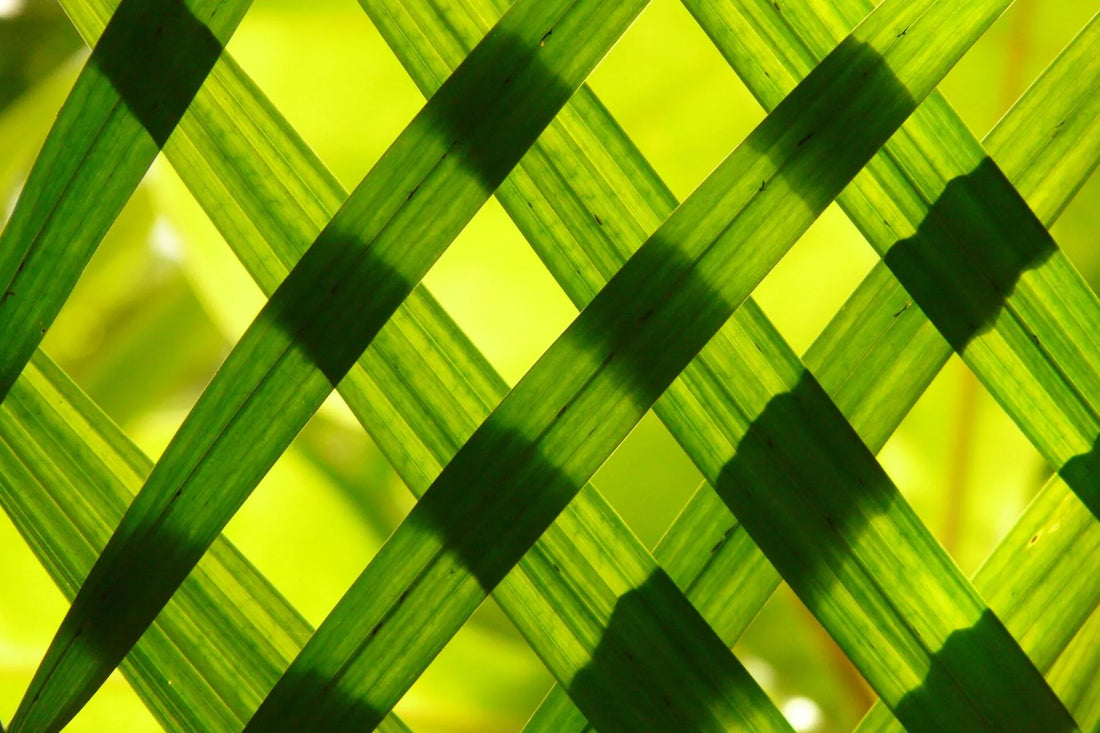
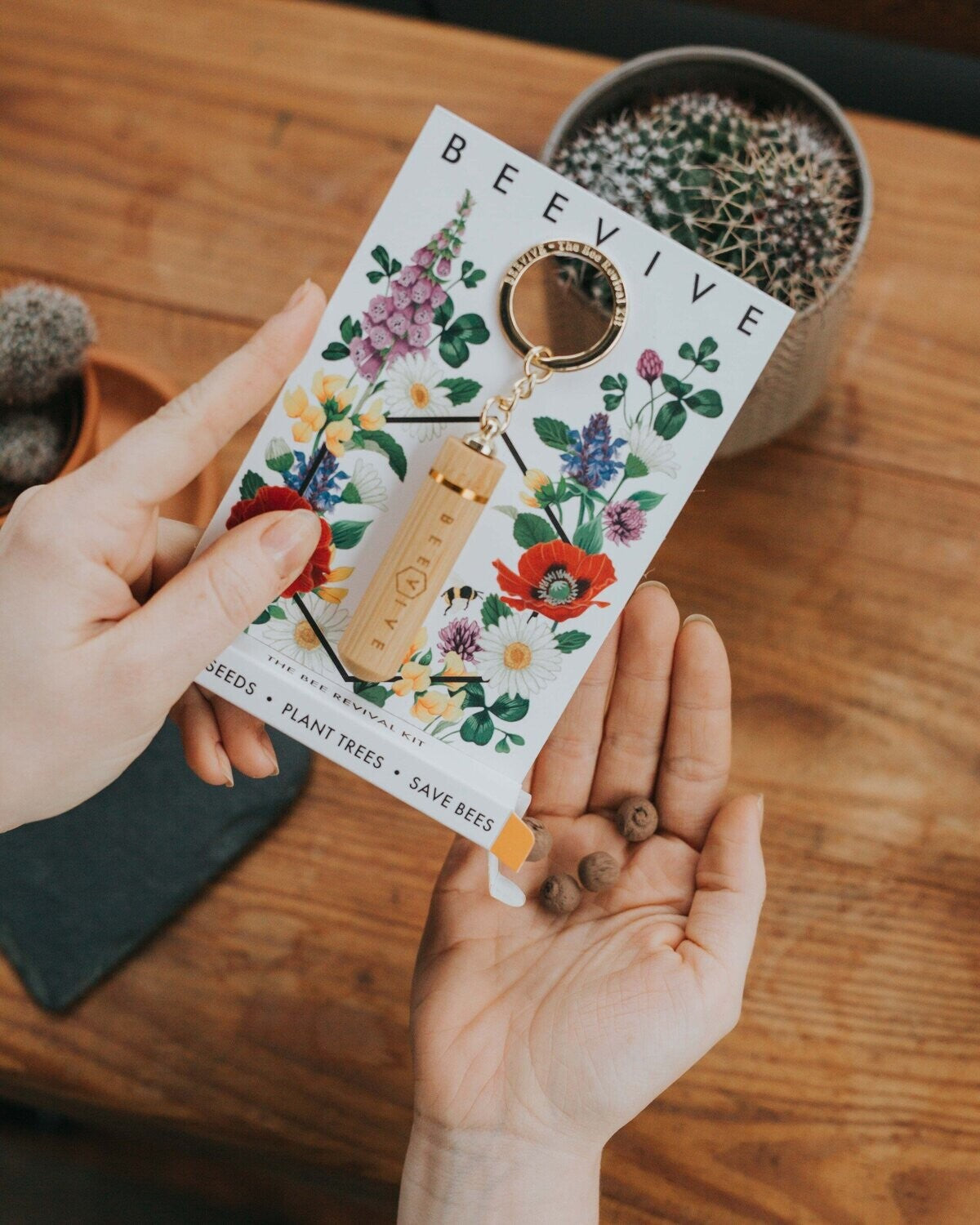 Bee Revival Kit - Bamboo Edition
Bee Revival Kit - Bamboo Edition The Original Bee Revival Kit - Anthracite Grey Edition
The Original Bee Revival Kit - Anthracite Grey Edition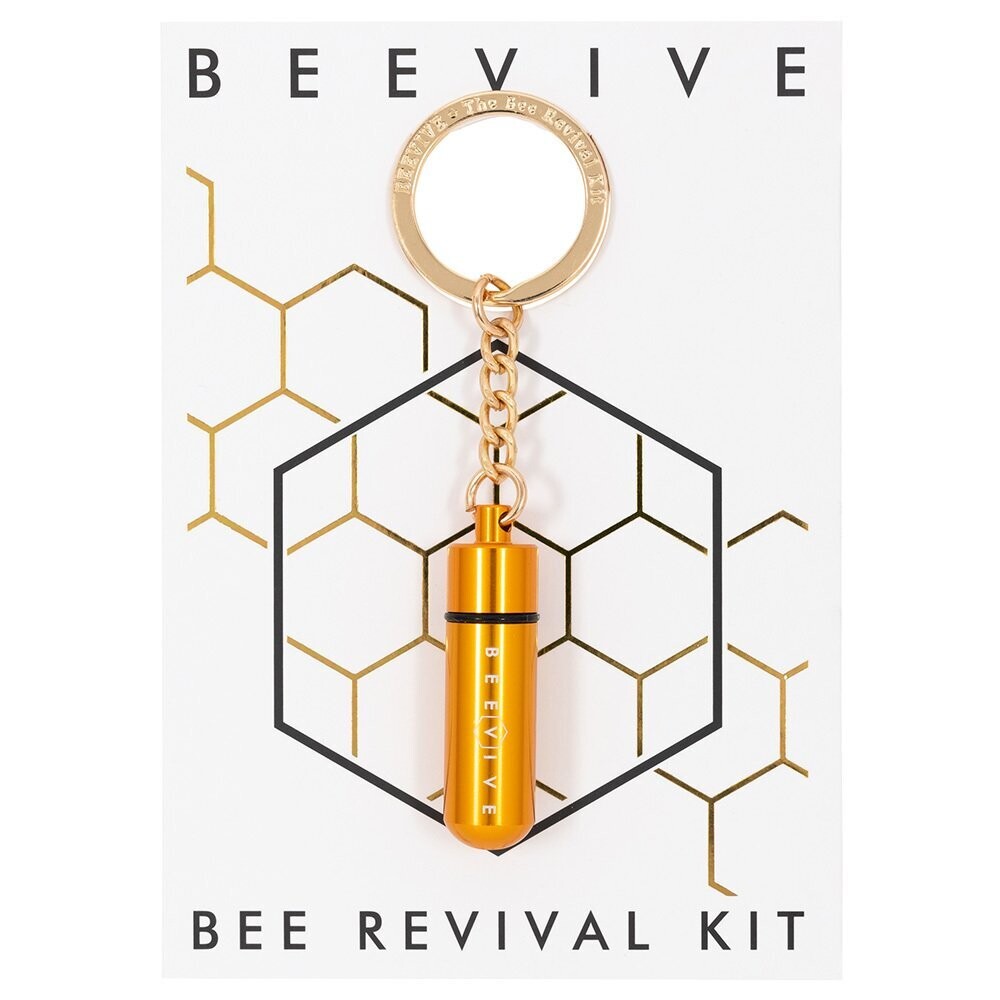 The Original Bee Revival Kit - Gold Edition
The Original Bee Revival Kit - Gold Edition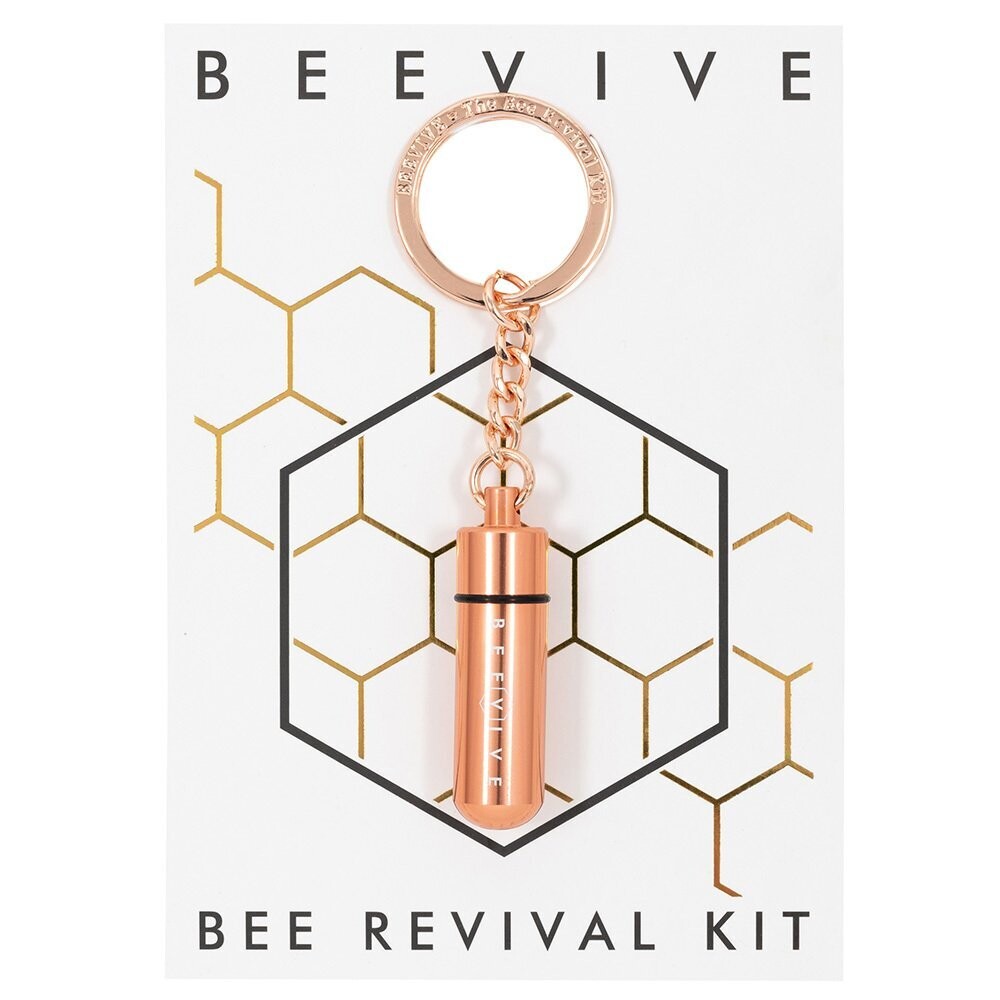 The Original Bee Revival Kit - Rose Gold Edition
The Original Bee Revival Kit - Rose Gold Edition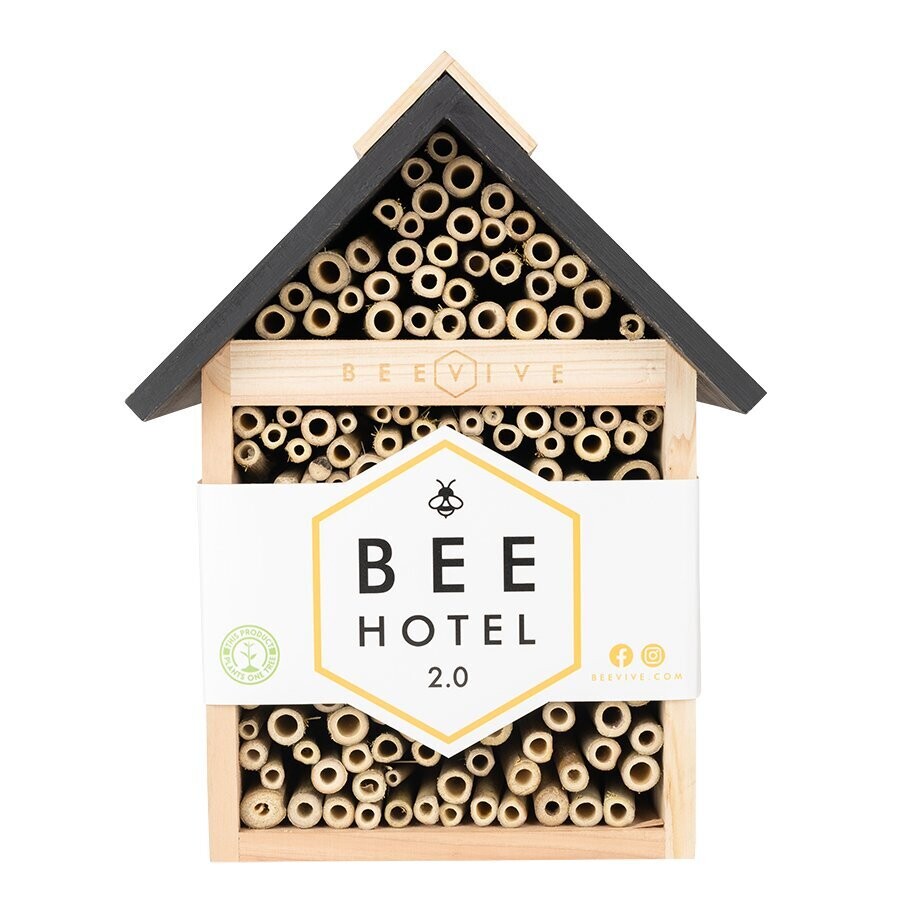 Beevive Bee Hotel 2.0
Beevive Bee Hotel 2.0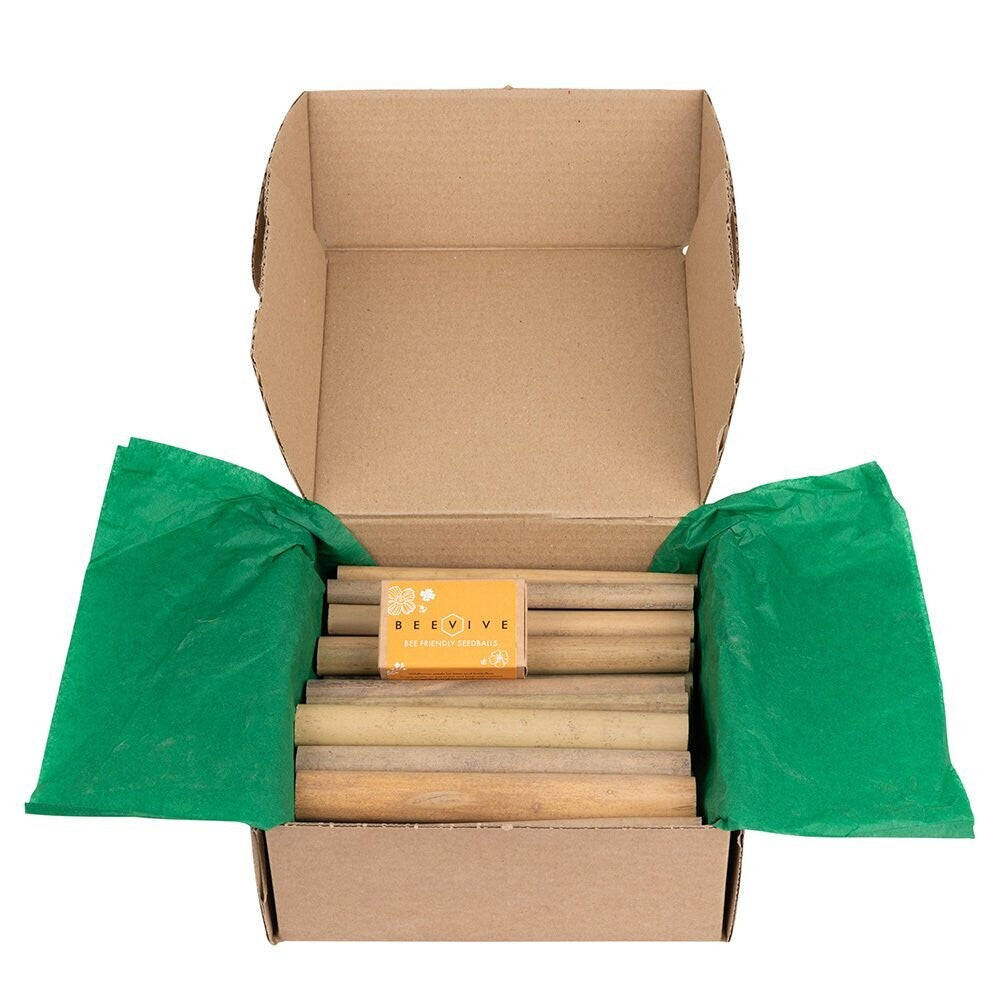 Solitary Bee Bamboo Tubes
Solitary Bee Bamboo Tubes